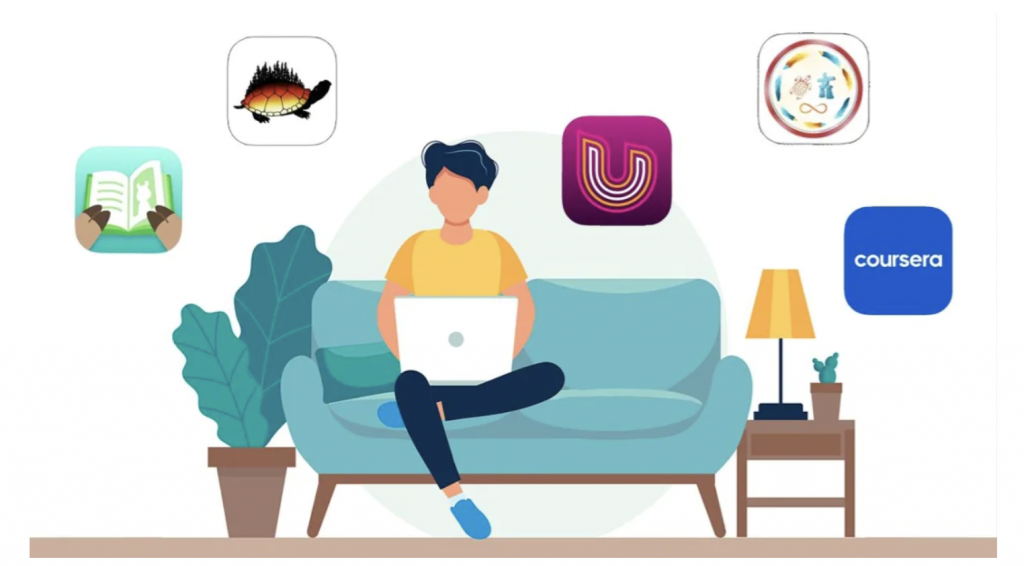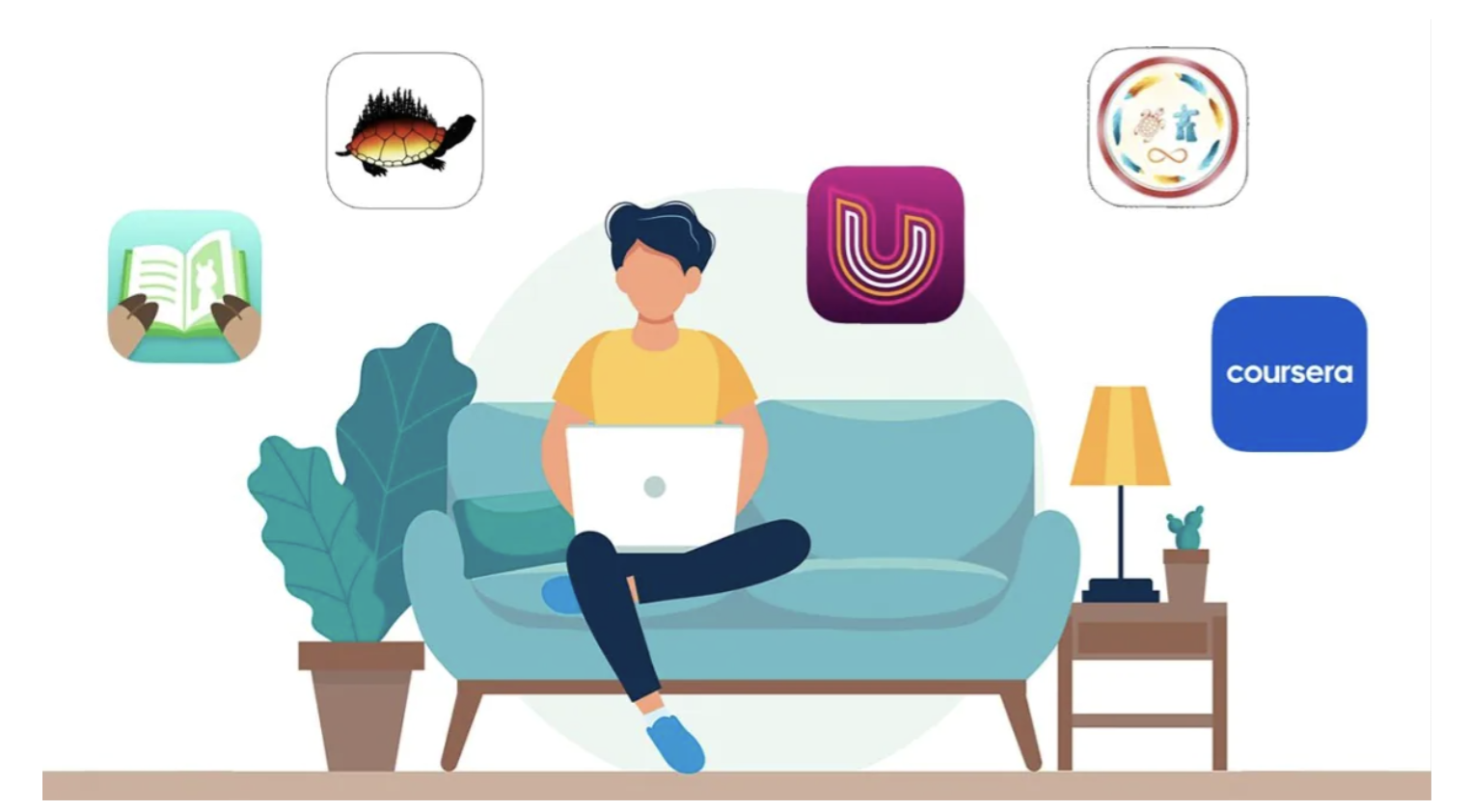In honour of the first National Day for Truth and Reconciliation, it seems fitting that one explores how mobile technology is responding to the Calls to Action that were laid out in 2015. When exploring I came across a few apps. The first is the Reconciliation: A Starting Point which is an app created by the Government of Canada that acts as an information source with videos and content exploring indigenous language, culture, experiences, and opportunities through the voices of indigenous peoples. Additionally, I looked at an app called Couresa out of the University of Alberta which has received great reviews online as a free way to become more informed about the history of indigenous people in this country. Whose Land, is an app that uses GPS to identify where a person is in relation to indigenous territories and nations. Finally, the last app I looked at was First Voices (FV) Keyboards, which was created by the First Peoples Cultural Council. The FV Keyboards allow the user to choose the indigenous language they wish to use and then install the appropriate keyboard to their device.
Mobile education initiatives provide Canadians with efficient and accessible space to learn about indigenous communities’ traditions, cultures, and experiences. Through hearing indigenous languages, listening to their stories and, inviting learners to engage with new ways of knowing, app designers are beginning to push the boundaries of educational theories. The indigenous education apps shared use aspects of constructivism in asking learners to be active participants in hearing and engaging with indigenous perspectives, ways of knowing, oral stories and language. The cognitivist theory is layered in these apps as well, offering contextualized learning driven by an individual’s GPS coordinates and the coinciding information attached to it. The most apparent educational theory found in these mobile learning tools is connectivism. Web 2.0 tools allow for informal learning that is free, easily accessible and in the palm of one’s hand.
Finally, when app development aligns with social justice issues that are as important as truth and reconciliation, there is a societal push (encouraged by social media) to become better informed and to take ownership of ones own learning. I argue that when pedagogy meets mobile education and aligns with social justice issues, there is a profound opportunity to mobilize an individuals’ intrinsic motivation to be better informed.

https://www.cbc.ca/life/culture/5-apps-for-learning-about-indigenous-life-and-history-1.6082831

Thanks for these links, Grace. It is wonderful to see more resources cropping up that teach people about the Indigenous History and cultural genocide that occurred on these lands that we now call Canada.
So as to not create confusion, Couresa is a learning management system with a mobile app, which hosts courses from many institutions. University of Alberta has create a course on their platform on Indigenous Canada that has been garnering good reviews. Here’s the link to that course: https://www.coursera.org/learn/indigenous-canada
Thanks for sharing this post! I will explore some of the resources you shared, I do plan to complete the course through Coursera soon, thank you!
With the increasing use of apps and mobile devices to the point where they are a huge part of most people’s daily habits, aligning those apps with intended social and cultural changes is a prudent plan that will likely have more impact than other attempts or current practice.
Hi Grace, great post! I particularly appreciated your concluding remarks about aligning app development with social justice issues to better inform the populace.
Miguel’s suggestion about developing apps that embrace Indigenous history and culture was also a great idea. Did a search, and found some:
https://native-land.ca/
https://www.indigenousbc.com/indigenous-bc-trip-planner-app/
https://www.yesmagazine.org/issue/decolonize/2018/04/16/this-app-can-tell-you-the-indigenous-history-of-the-land-you-live-on
https://www.indigenousvision.org/blackfoot-place-map/
I took the U of A course “Indigenous Canada” last year and I quite enjoyed it! I agree with you that having this type of resource encourages people to delve into social justice issues on their own volition. I chose to take this course on my own and completed it at my own pace. Although I think the design of this course could be better, I did appreciate that you could basically choose to watch all the videos or read all the content and still come out with the same understanding. I also really appreciate the fact that you could take this course for free or pay $60 to get the certificate. I can still pay the $60 at any time if I need the certificate. Lastly, I like the fact that I could learn about this topic on my own from a trusted source. I felt “safe” learning on my own. It can be difficult to learn about social justice issues because of the subjectivity and emotional charge these issues bring out in people. I felt I learned a lot in this course and I would take another one if the opportunity came up.
Thank you for this post,
I appreciate how you highlighted how mobile technology is contributing to Indigenous education which supports the process of reconciliation.
It is clear that the creation of accessible, free apps allow for individuals to become active learners in exploring Indigenous perspectives. Once more, with new advances in GPS technology, learners are able to step outside and connect with geographical places in ways that were previously limited.
Going forward, I would like to see mobile technology interact with our social world to better support experiential learning. QR code’s are one way Indigenous perspectives, stories, art and place can be explored more fully. Placing QR code’s in historically significant areas around our cities will create connection to place and act to bridge online learning with active, experimental learning. I would like to see our communities adopting more QR code’s, as done in many other countries. This would provide a platform for expanding Indigenous cultural learning within our daily lives. Finally, utilizing technology in the form of well placed QR code’s will create the connection between technology and our social living world.
Thank you for your post, you provided a lot of great resources that I will definitely share.
Miguel
I agree, Miguel. I think we’re only just starting to think about the possibilities of living and breathing place based learning through the digital lens. QR codes are wonderful, but can become stale if the content isn’t updated. I see great potential for crowd sourced knowledge on a platform such as iNaturalist of Seek, where data is continuously added and altered to reflect what people are seeing and experiencing.